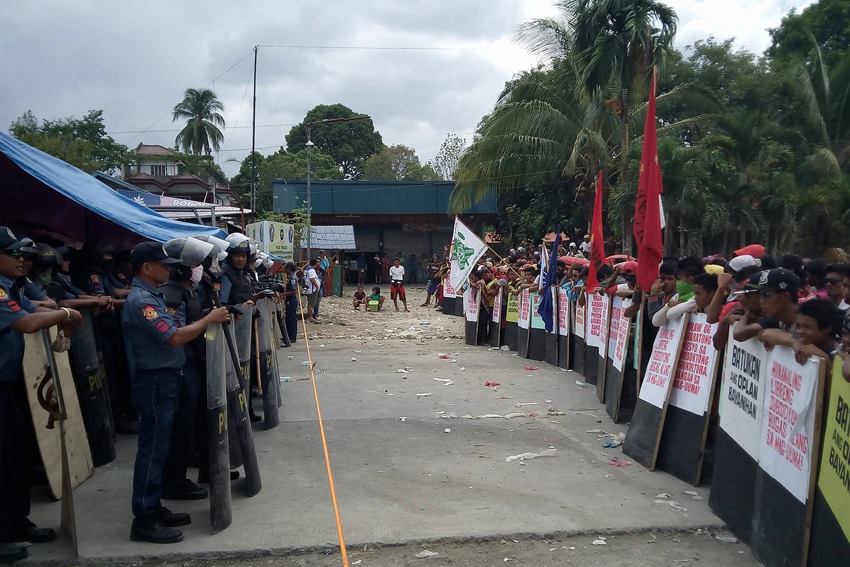
YELLOW LINE. A yellow rope serves as the division between the protesting farmers and the anti-riot police from the province in Kidapawan City. The farmers are demanding for 15,000 sacks of rice and subsidies from the calamity fund of the provincial government. (Earl O. Condeza/davaotoday.com)
DAVAO CITY — After thousands of farmers blocked the Davao-Cotabato national highway in Kidapawan City on early Wednesday to demand rice distribution to drought-affected families, the International League of People’s Struggle has called on the government to mobilize its resources and address the farmers’ demands.
“The El Niَño cycle has become even more intense with extreme climate change and this year’s drought has severely affected farmers’ crops. The least that the government can do is to mobilize its resources to tide them over,” said ILPS-Philippines Chair Elmer Labog in a statement on Thursday, March 31.
Labog said, in North Cotabato alone, the drought has damaged more than P238 million worth of rice, corn, banana, rubber, coconut, oil palm and vegetable planted by small farmers in over 27,500 hectares.
“As of last month, the drought has affected 237,000 hectares of agriculture areas with an estimated production loss of 358,800 metric tons of rice, corn, high value crops, and livestock,” he added.
The ILPS Philippines is a local chapter of the ILPS which was founded on May 25, 2001 in Zutphen, the Netherlands. The ILPS Philippines headquarters is located in Quezon City.
Labog said they are also calling for international support to farmers. “The United Nations World Food Programme has noted that the Philippines has a food deficit, which is exacerbated by the combined effects of natural and man-made disasters,” Labog said.
The farmers from the eight municipalities of North Cotabato province barricaded the national highway since 5:30 am Wednesday and demanded for the provincial government to release 15,000 sacks of rice. As of 4:00 pm Thursday, the farmers still refused to lift the barricade.
Aside from rice, the farmers also demanded for farm input assistance and the intervention of the government to increase the price of their produce. They also demanded subsidy from the government.
See: IN PHOTOS| Farmers barricade in North Cotabato highway
Labog said the country continues to reel from hunger “with the export-oriented economy, public-private partnerships, trade liberalization and other neoliberal impositions” despite the government’s poverty-alleviation initiatives like the Conditional Cash Transfer (CCT) program. (davaotoday.com)










